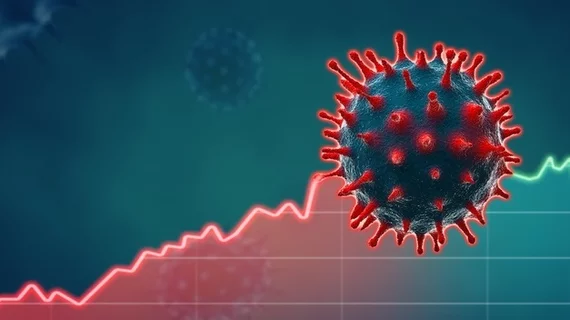Cancer screening in need of ‘urgent attention’ to address lingering effects from COVID shutdowns
Cancer screening centers need “urgent attention” to help address lingering effects from recent COVID-19 shutdowns, according to new research published Monday.
Accredited U.S. programs have reported sizable monthly screening deficits for lung (nearly 45% of facilities), breast (55%), and colorectal cancer (81%). Overall median percentage drops in monthly screenings were nearly 2% for breast cancer, climbing as high as 18% for colorectal screenings, experts wrote Monday in Cancer.
Based on these numbers, programs have launched more than 800 quality improvement projects aiming to address this issue. Early estimates indicate that, if successful, the initiatives will have added an additional 1,744 monthly lung screening tests in 2021, with even more for colon (6,079) and breast cancer (57,141).
“Cancer screening is still in need of urgent attention, and the screening resources made available online may help facilities to close critical gaps and address screenings missed in 2020,” corresponding author Heidi Nelson, MD, medical director of cancer programs at the American College of Surgeons, and colleagues concluded.
For the prospective study, surgery and American Cancer Society experts enrolled 748 cancer programs between April and June of 2021. They compared average number of screening tests performed in September 2019 and January 2020 up against the same months one year later amid the COVID crisis. During the intervention period (from June to November 2021), participants strove to restore monthly screening test volumes back to pre-pandemic levels.
Changes included utilizing new Return-to-Screening Plan-Do-Study-Act (PDSA) protocols (a widely accepted healthcare quality initiative), screening guidelines and toolkits. With these national resources at-hand, cancer centers pinpointed their largest screening deficits and targeted interventions, Nelson et al. noted. All told, the endeavor is expected to provide 70,000 additional breast, lung, colorectal and cervical screening tests, if its goals are achieved.
“From the perspective of people’s health, we are hopeful that this collaborative effort between the American College of Surgeons Cancer Programs and the American Cancer Society may have saved many patients from unnecessary suffering and death from cancer,” Nelson said in a statement.
Read more about the quality initiative in the American Cancer Society’s flagship journal.

